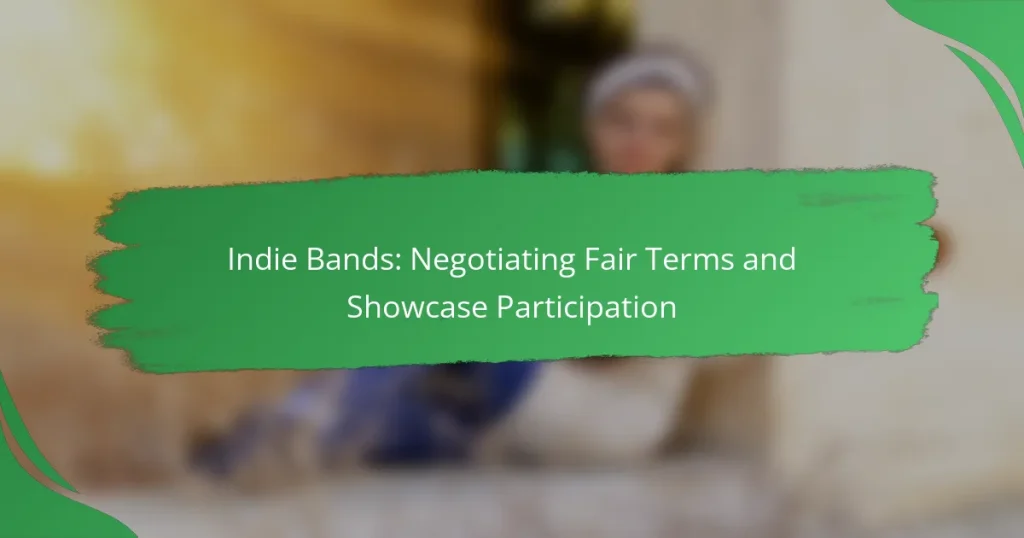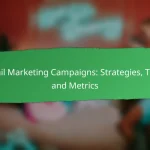Indie bands face unique challenges in negotiating fair terms with venues and participating in showcases. By understanding contract details and industry standards, they can effectively advocate for appropriate compensation and expectations. Additionally, careful planning and relationship-building with promoters are essential for successful showcase participation.
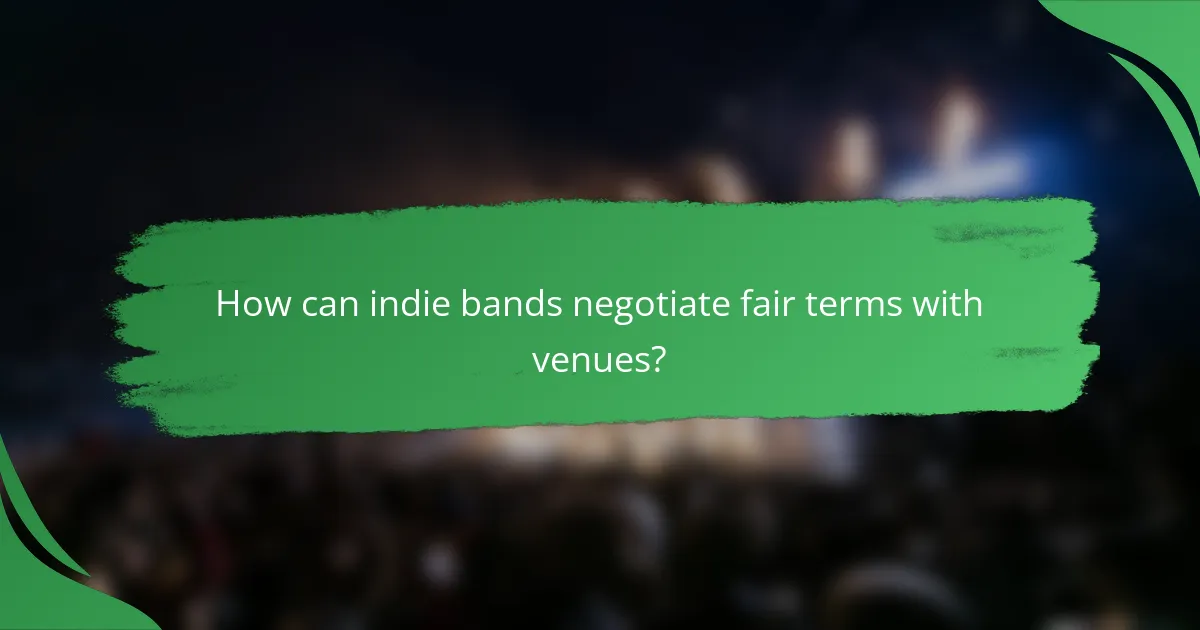
How can indie bands negotiate fair terms with venues?
Indie bands can negotiate fair terms with venues by understanding the contract details and employing effective strategies during discussions. It’s crucial to be informed about industry standards and to communicate clearly about expectations and compensation.
Understanding standard contracts
Standard contracts for live performances typically include clauses about payment, performance duration, and technical requirements. Bands should familiarize themselves with common terms such as guarantees, door splits, and rider agreements. Knowing these elements helps in assessing whether a contract is fair or needs adjustments.
For instance, a guarantee is a fixed payment that a band receives regardless of ticket sales, while a door split means the band earns a percentage of ticket sales after expenses. Understanding these differences can significantly impact a band’s earnings.
Key negotiation strategies
Effective negotiation strategies include doing thorough research on the venue’s past events and typical payouts. This information can provide leverage when discussing terms. Bands should also be prepared to articulate their value, such as their fan base size or social media reach, which can justify higher compensation.
Additionally, consider proposing a trial performance to establish a relationship with the venue. This can lead to better terms in future negotiations based on proven success. Always approach negotiations with a collaborative mindset, aiming for a win-win situation.
Common pitfalls to avoid
One common pitfall is failing to read the entire contract before signing. Bands should look for hidden fees or unfavorable clauses that could affect their earnings. It’s advisable to seek legal advice if unsure about any terms.
Another mistake is undervaluing their worth. Many indie bands accept low offers out of fear of losing the opportunity, but this can set a precedent for future gigs. Establishing a minimum acceptable rate can help avoid this issue.
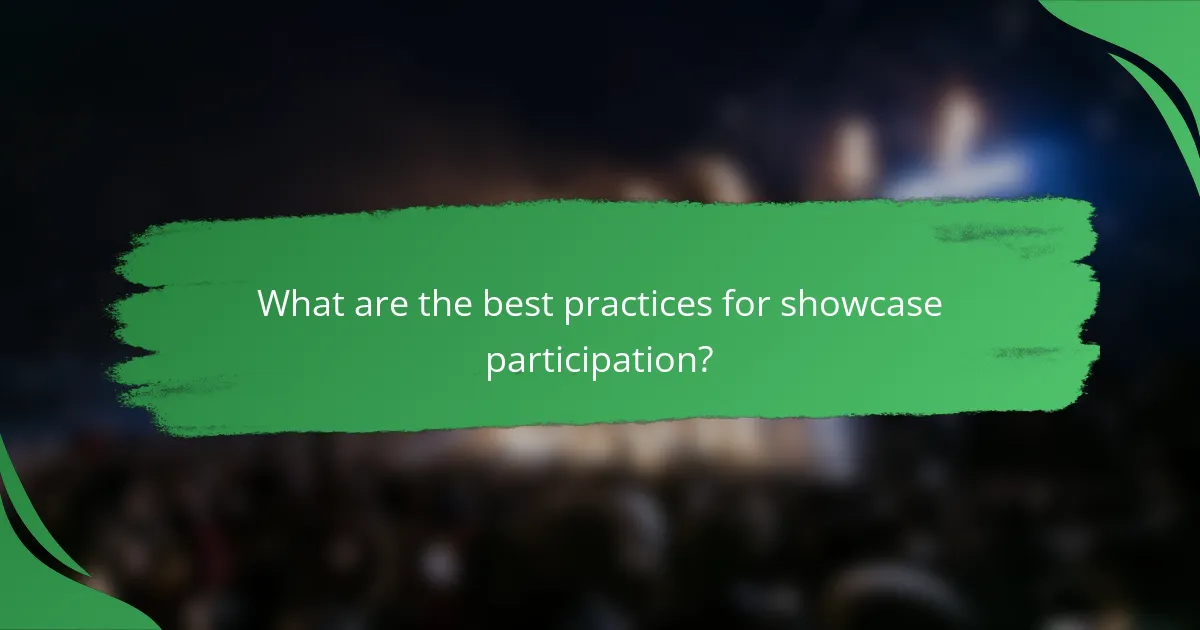
What are the best practices for showcase participation?
Participating in showcases effectively requires careful planning and strategic choices. Key practices include selecting the right events, preparing a compelling performance, and fostering relationships with promoters.
Choosing the right showcases
Selecting the appropriate showcases is crucial for maximizing exposure and networking opportunities. Research events that align with your music genre and target audience. Look for showcases that have a history of attracting industry professionals and potential fans.
Consider the location and timing of the showcase. Events held in major music hubs or during popular festivals often draw larger crowds and more influential attendees. Aim for showcases that offer a mix of emerging and established artists to enhance your visibility.
Preparing an effective showcase performance
Your performance should be polished and engaging to leave a lasting impression. Focus on your strongest songs and ensure they are well-rehearsed. Consider the set length, typically ranging from 15 to 30 minutes, and plan your setlist accordingly.
Incorporate elements that enhance the live experience, such as visual effects or audience interaction. Practice your stage presence and ensure your sound quality is top-notch. A well-executed performance can lead to further opportunities and connections.
Building relationships with promoters
Establishing strong connections with promoters can open doors for future gigs and collaborations. Attend industry events and engage with promoters before and after showcases. Show genuine interest in their work and maintain a professional demeanor.
Follow up after the showcase with a thank-you message, expressing appreciation for their efforts. Keep them updated on your progress and upcoming shows. Building a rapport can lead to more opportunities and recommendations within the industry.
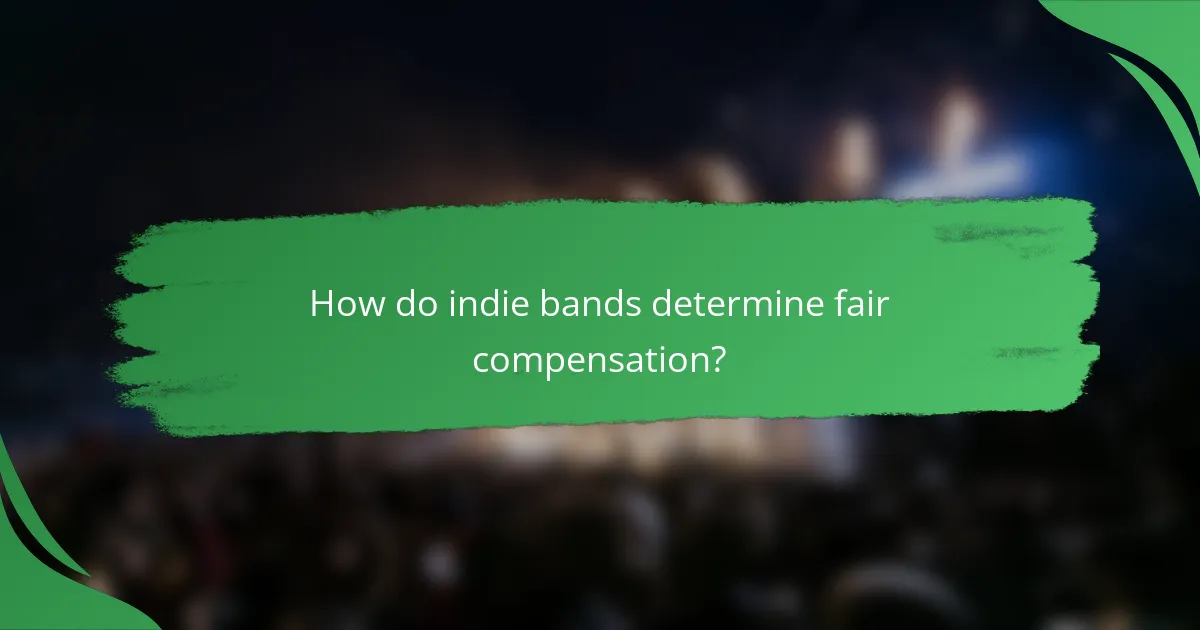
How do indie bands determine fair compensation?
Indie bands determine fair compensation by assessing industry standards, considering various influencing factors, and negotiating terms that reflect their value and contributions. Fair compensation often varies based on the venue, audience size, and the band’s experience level.
Industry standards for payment
Industry standards for payment can differ widely depending on the location and type of performance. For smaller venues, indie bands might expect to earn between $100 to $1,000 per show, while larger festivals may offer several thousand dollars. It’s essential for bands to research typical rates in their region to set realistic expectations.
Many venues also offer a percentage of ticket sales, which can range from 70% to 100% for the band after expenses. Understanding these standards helps bands negotiate from an informed position.
Factors influencing compensation
Several factors influence compensation for indie bands, including the band’s popularity, the size of the venue, and the expected audience turnout. A band with a strong local following may command higher fees compared to a lesser-known group. Additionally, the day of the week and time of year can affect ticket sales and, consequently, payment.
Other considerations include the band’s performance length and any additional costs, such as travel and accommodation. Bands should factor these elements into their compensation discussions to ensure they cover all expenses.
Negotiating payment terms
Negotiating payment terms requires clear communication and a willingness to advocate for fair compensation. Bands should prepare by knowing their worth and being ready to present their case, including past performance successes and audience engagement metrics.
It’s beneficial to have a written agreement outlining payment details, including deposit amounts, final payment timelines, and any additional perks like merchandise sales or food and drink provisions. Bands should also be open to flexible arrangements, such as adjusting fees based on ticket sales, to create win-win scenarios with venues.
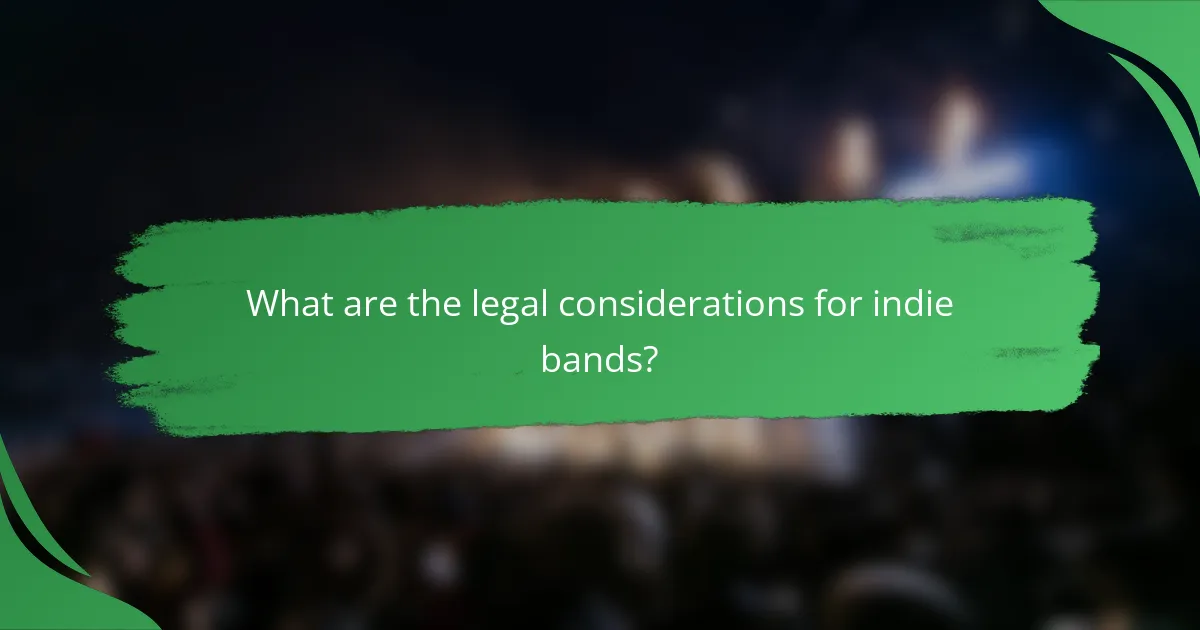
What are the legal considerations for indie bands?
Indie bands must navigate various legal considerations to protect their music and ensure fair participation in showcases. Key areas include copyright laws, performance rights, and the importance of consulting legal professionals to avoid common pitfalls.
Understanding copyright laws
Copyright laws protect the original works of indie bands, granting them exclusive rights to their music. This means that any reproduction, distribution, or public performance of their songs requires permission from the copyright holder.
Indie bands should register their works with the relevant copyright office to strengthen their legal standing. In the U.S., for instance, registration can be done through the U.S. Copyright Office, which provides legal benefits in case of infringement.
Importance of performance rights
Performance rights ensure that artists are compensated when their music is played in public venues, such as bars, clubs, or festivals. Organizations like ASCAP and BMI in the U.S. manage these rights, collecting royalties on behalf of artists.
Indie bands should familiarize themselves with performance rights organizations (PROs) to ensure they receive fair compensation. Joining a PRO can help bands track usage of their music and secure payments, which can range from a few dollars to hundreds, depending on the venue and audience size.
Consulting with legal professionals
Engaging a legal professional who specializes in music law can help indie bands navigate complex contracts and agreements. A lawyer can provide insights into important clauses related to royalties, licensing, and distribution.
When negotiating contracts for showcases or recordings, bands should seek legal advice to avoid unfavorable terms. Common pitfalls include unclear revenue splits and restrictive clauses that limit artistic freedom. A good rule of thumb is to have a lawyer review any contract before signing to ensure it aligns with the band’s interests.
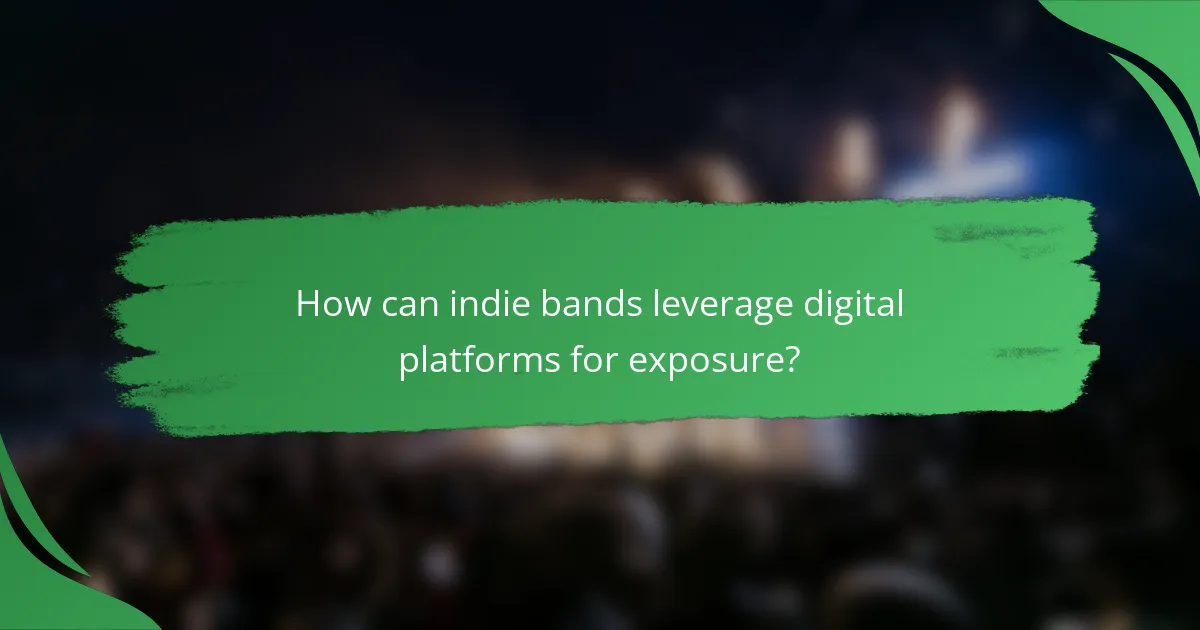
How can indie bands leverage digital platforms for exposure?
Indie bands can effectively use digital platforms to gain exposure by strategically utilizing social media and music streaming services. These tools not only enhance visibility but also facilitate direct engagement with fans, which is crucial for building a loyal audience.
Using social media effectively
Social media platforms like Instagram, Facebook, and TikTok are vital for indie bands to connect with their audience. Regularly posting engaging content, such as behind-the-scenes footage, live performances, or personal stories, can help cultivate a strong online presence.
To maximize reach, bands should consider using targeted advertising to promote their music or upcoming shows. Engaging with followers through comments and messages fosters community and encourages sharing, which can significantly increase visibility.
Benefits of music streaming services
Music streaming services like Spotify and Apple Music provide indie bands with a platform to distribute their music widely without the need for traditional record labels. These services often include playlists that can introduce new listeners to the band’s music, enhancing exposure.
Additionally, many streaming platforms offer analytics tools that help bands understand their audience demographics and listening habits. This data can inform marketing strategies and help bands tailor their content to better resonate with listeners.
